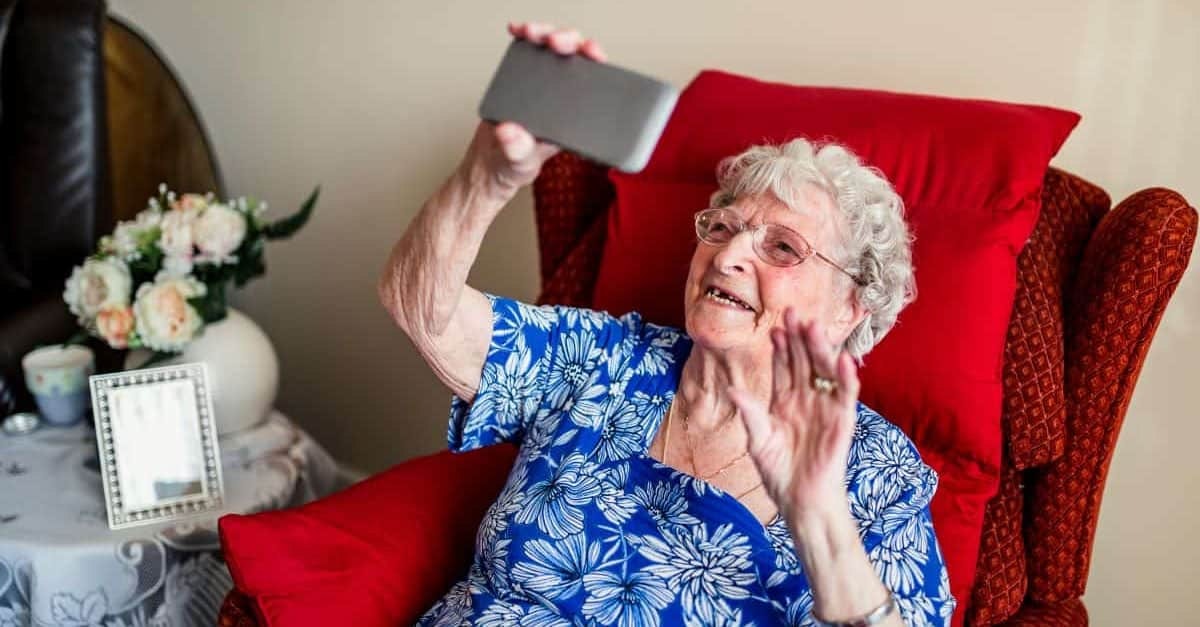
When Your Loved One is Far Away: Tips for Long-distance Caregiving
Being a long-distance caregiver is not easy and presents unique challenges. Although it may seem overwhelming or stressful, providing care and support to a family member is one of the most important responsibilities you may have. Being organized and utilizing available resources will help ensure your loved one gets the best care, even when you’re far away.
Below are some common challenges a long-distance caregiver faces and some helpful tips to help you overcome those challenges.
Challenge: Managing Health and Finances
Managing the health and finances of someone from a distance can be difficult. Ideally, you will be able to talk with your loved one about medical, financial, and legal issues before a situation or crisis occurs. Realistically, however, the opportunity to prepare does not always surface organically.
Tips for Managing Health and Finances:
- Assess your loved one’s needs (emotional, spiritual, physical, social, financial, and health-related).
- If possible, openly discuss advance directives and ensure your loved one has financial and medical powers and general power of attorney. These can be touchy topics but are very important in an emergency. Be sensitive to your loved one’s feelings during these conversations. It’s often helpful to point out that these documents ensure that your loved one’s wishes are carried out if they cannot speak for themselves. Having a will in place will also make it easier for the family. Most people find peace of mind knowing their family is prepared for any situation. Learn more about Advance Directive options available.
- If your loved one has an advance directive, keep it someplace visible in their home in the event there is an emergency, and you are not there to advise EMS. (The refrigerator and back of the bedroom door are often recommended locations.)
- Ensure all essential documents are gathered and easily accessible, including birth certificates, social security cards, bank account information, and insurance documents. You should also make a list of any email or phone passwords as well as digital subscription information.
- Know all health conditions, prescriptions, and health care providers’ contact information. Have documentation listing you as a contact person with access to your loved one’s medical information and records. This information should also go on the refrigerator and back of the bedroom door.
Challenge: Performing Household Chores
Household chores, including grocery shopping, preparing meals, house cleaning, and transportation, can become challenging when the caregiver – and loved one – cannot perform these tasks as needed.
Tips for Performing Household Chores:
- Check your loved one’s insurance plan to understand if it covers long-term services, such as a Home Health Aide (HHA) or Personal Care Worker (PCW). If your loved one needs these services and they are not covered, perhaps consider a new insurance plan.
- Explore food and meal delivery services. Organizations throughout the country provide doorstep delivery of nutritional meals, such as Meals on Wheels. If your loved one has difficulty reaching the doorstep, be sure to have contact information of neighbors who would be willing to help. Some health plans offered home-delivered meals as part of their benefits.
- Research and find a reputable light housekeeping service or HHA to help with daily chores. Light housekeeping services often provide low-cost, simple tasks such as doing dishes or changing linens on an as-needed basis.
- Set up online banking, including direct deposit of checks, when possible, so your loved one can manage bill payments without leaving home. If your family member cannot manage their finances, online banking will make it easy for you to manage almost everything remotely.
- Arrange for a reliable source of transportation when it’s needed.
- Create a schedule and contact sheet for any helpers or emergency contacts to access. This should include any prescriptions, doctors’ phone numbers, allergies, or other pertinent information, including your contact information.
Challenge: Staying in Touch
As a long-distance caregiver, you may face some challenges with staying in touch regularly. Today, visiting often can become challenging, even for those not far from their loved ones, mainly because of COVID-19 exposure risks.
Tips for Staying in Touch:
- Reach out to a trusted person or organization geographically closer to your loved one and develop a care plan. This is especially important if something were to happen at night.
- Use technology like video chats to communicate with your loved one regularly. This is especially important since COVID-19 has made face-to-face visits even more challenging for some people. There are several video conferencing resources available at no or low cost. Set up these devices in easily accessible areas so that everyone can stay connected without difficulty.
Challenge: Stress and Burnout
Caregiver stress and burnout are significant concerns due to the increased complications associated with caring for your loved one from afar. The most critical step in being the best caregiver is to care for yourself.
Tips for Stress and Burnout:
- Practice self-care.
- Take advantage of resources like support groups and local organizations.
- Take time to participate in activities that are rejuvenating to you.
- Accept what you can and cannot do without guilt, and know that you are doing the best you can.
- Ask for help when you need it.
You are not alone
We at MJHS value personal and professional caregivers and recognize your critical work. We have created these online caregiving resources to help you through this crucial time in your life.
If you need additional help and support caring for your loved one, don’t hesitate to contact MJHS. We can recommend other care options through one of our programs.